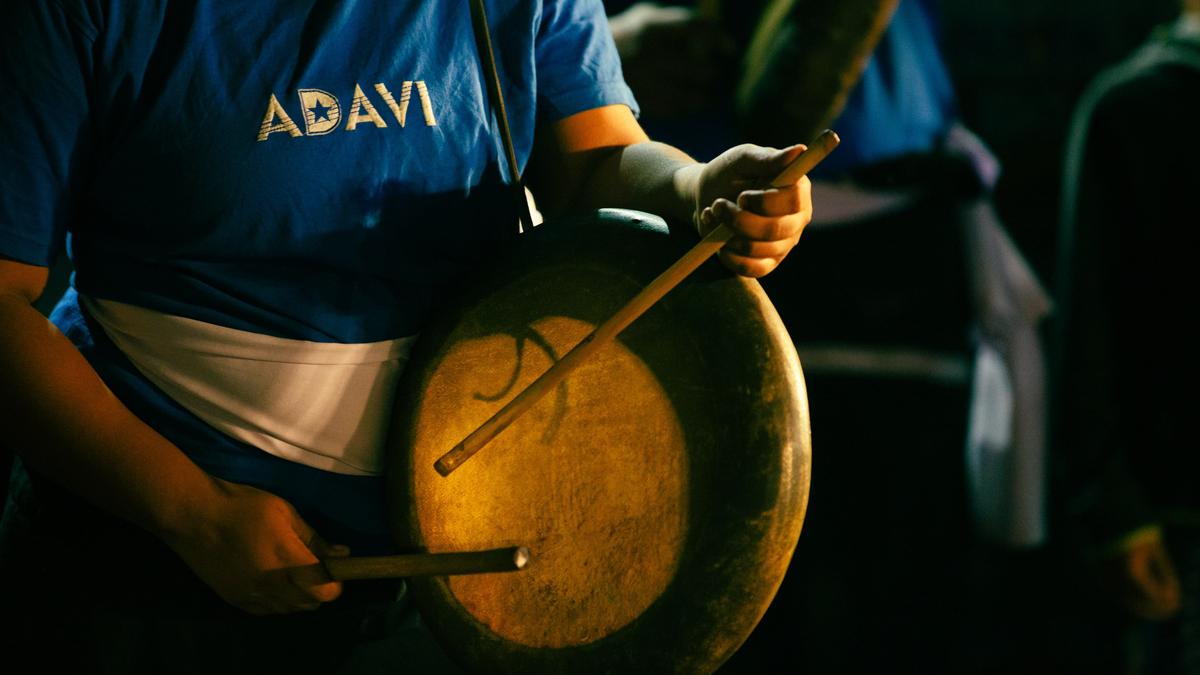The parai is the only instrument that has been burnt by its own players. Reclaiming it as a symbol of resistance, Bengaluru-based Adavi Arts Collective recently celebrated a year of workshops, shows and jam sessions. Adavi recently performed at the Shoonya Centre for Art and Somatic Practices as part of a fundraiser organised by the Hank Nunn Institute.
The founder of Adavi and a parai artiste by profession, Keela Naren explains that the parai is traditionally played at funerals to establish the death of a person because no living body can resist moving to its rhythmic beats. Sure enough, the infectious beats roused the crowd to their feet, with most of the audience dancing by the end of the event. Adavu , in Tamil, literally translates to rhythm, and adavi to forest, but the meaning that the collective attributes to it involves a deeper morphological dive.

Aattam means dance, and can extend to movement; avi means beings. Adavi – dancing beings – is a portmanteau of these words. A parai| Photo Credit:Special Arrangement The collective finds its spirit in a mixture of these understandings, which it describes as “a harmonious nest where swaying trees, sprouting leaves, animals and all beings dance alike, without any boundaries in nature’s rhythm.
” Adavi wishes to help folk and contemporary art forms reach younger generations through a blend of community learning and political discourse. Alongside the electrifying performance at Shoonya, Keela delved into the rich history of the parai. The instrument is usually played at funerals by the socially disadvantaged who have, on numerous occasions, protested the demeaning treatment meted out to them.
He elaborated saying parai players barely earn any money and are often paid with alcohol. Acknowledging its complex past, Adavi believes anyone should be allowed to play the parai. They consider it a symbol of equality as an instrument that embraces all and do not play it at funerals, but as an expression of their love for the instrument.
The collective extends this spirit of equality and faith in art as liberation to the realm of gender as well. Traditionally, the parai has been played only by men. By encouraging women and members of the LGBTQIA+ community to play the parai, Adavi attempts to change this mindset.
Founder of Adavi Keela Naren| Photo Credit:Special Arrangement “I was glad to see a number of women dancing in saris. Usually, a lot of women attend our workshops, but they hardly hold performances. Today, was one of the best turnouts we’ve had,” admits Meghana Natraj, one of the first women to join Adavi.
Members of the collective come from different walks of life. The group includes students, theatre practitioners, dancers, teachers, a data analyst and a cable contractor. Advik, a life skills educator, says, “So many different people attend sessions regularly, and so, by the end of the day, you’re always learning something new.
It has given me a lot of friends, happiness and fulfilment.” Drummers playing the parai| Photo Credit:Special Arrangement Copy link Email Facebook Twitter Telegram LinkedIn WhatsApp Reddit.



















